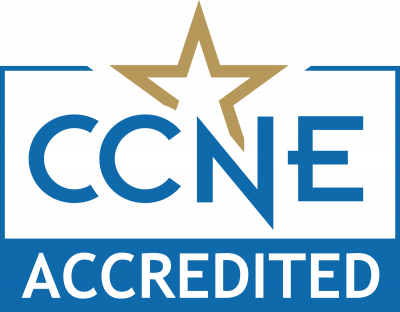
How do I apply to the University of Connecticut Elisabeth DeLuca School of Nursing?
- High School students apply directly to Undergraduate Admissions declaring Nursing as a major.
- Students currently attending other universities or colleges apply to Undergraduate Admissions as a transfer student.
- Current UConn students wishing to change their majors to Nursing must complete our online, “School Change Petition” form
- Students wishing to attend a master's program or take a graduate certificate should apply through the specific program's website. Please note the different application deadlines, depending on the program.
- DNP students should apply through the Graduate School.
- PhD students should apply through the Graduate School.
What prerequisite courses are required for the nursing programs?
Prerequisites vary by program:
- Bachelor of Science
- CEIN/BS Accelerated Second Degree
- Master of Science
- Doctor of Nursing Practice
- Doctor of Philosophy
Students applying to graduate programs should also check admission requirements set by the Graduate School.
Can I take undergraduate nursing courses at all UConn campuses?
Undergraduate nursing courses are only offered at the Storrs campus.
Those who already have a bachelor's degree in another field, and wish to prepare to become a registered nurse, can apply for our one-year CEIN/BS Accelerated Second Degree program, which is offered at the Avery Point, Stamford, Storrs, and Waterbury campuses.
I was accepted into UConn as an undergraduate, but I wasn’t admitted into the nursing major. Can I change my major to nursing later?
Students not admitted to the University of Connecticut Elisabeth DeLuca School of Nursing at the time of entry to the University may apply for admission through the School Change procedures.
Such students should submit a completed School Change Petition form as well as a statement as to why they desire to change to the Elisabeth DeLuca School of Nursing. School Change forms are due by Feb. 1 for Fall acceptance consideration. Decisions will be based on several criteria including the applicant's academic record, courses taken, and space availability. School Change applicants are normally expected to have a minimum cumulative GPA of 3.0 as well as math/science GPA that is equal or higher to be competitive.
Are transfer students admitted into the undergraduate program?
Transfer students are admitted to the School of Nursing on a competitive, space-available basis each year. Transfer applications are due to Undergraduate Admissions by Feb. 1 of each year preceding Fall admission.
How large are the undergraduate classes?
Nursing classes range from 19-120 students depending on the individual course. A ratio of 1:8 is used during clinical practicum coursework.
Are many classes taught by teaching assistants?
No. The School of Nursing utilizes teaching assistants to supplement regular faculty teaching in didactic and clinical courses. Teaching assistants who are experienced registered nurses returning to school for graduate coursework are used to help undergraduate students in simulated laboratory learning activities.
Is there a wide range of clinical sites available for students?
A variety of clinical agencies/experiences are used throughout the clinical component of the curriculum to facilitate students being able to meet the learning objectives of a particular clinical practicum course.
Examples of facilities used for clinical experiences are:
- Acute care hospitals
- Extended care facilities
- Rehabilitation facilities
- Ambulatory settings
- Clinics
- Public health agencies
- Schools
- Hospices
- Senior housing
- Correctional facilities
Is transportation provided to and from clinical sites?
Students are responsible for their own transportation to clinical experiences.
Please visit the UConn Parking Services website for information about parking on campus or obtaining a U-Pass for public transportation.
What specialties are offered in the Master of Science program?
We offer several different concentrations within our MS program:
When does the upcoming academic year begin?
Visit the Office of the Registrar’s Academic Calendar webpage.
What are the upcoming events for the Elisabeth DeLuca School of Nursing?
To see our upcoming events, view our School of Nursing Calendar.
What is the mailing address?
University of Connecticut Elisabeth DeLuca School of Nursing
231 Glenbrook Rd. U-4026
Storrs, CT 06269-4026
If you're sending something to the Admissions and Enrollment Services office, please include "c/o Admissions and Enrollment Services" when addressing the envelope.
Admission and Enrollment Services Contact Information
Please email: nursingadmissions@uconn.edu
